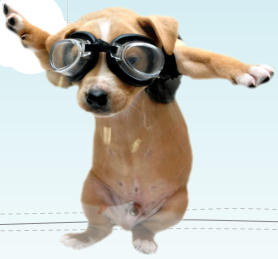
















































































Brookeside
Veterinary
Hospital
Veterinary Hospital Websites Ireland Ltd. © 2024 All Rights Reserved All Images & Content Subject to Copyright IE Reg # 542539
Kendra Ryan Camp Christian Veterinary Fellowship
Brookeside Veterinary Hospital | Ann Arbor MI Veterinarians | Brookedale Pet Boarding & Grooming | Serving Ann Arbor, Michigan
3010 Warren Road, Ann Arbor, Michigan 48105
Telephone 734-761-7523
Email us: BrookesideVet28@gmail.com
Brookedale Boarding & Grooming
Telephone 734- 761-2292
Caring For All Your Pets Both
Large & Small Since 1972




STEPS TO BETTER PET HEALTH
You are the one who cares for your pet – day in and day out – and therefore you may notice subtle
changes in your pet’s behavior or physical abilities. Take a few moments to review the signs of
possible problems; then discuss them with your veterinarian. What may look like normal signs of
aging could actually be early signs of a manageable health condition.
SIGNS OF POSSIBLE PROBLEMS:
•
Just not acting right
•
Difficulty climbing stairs or jumping up
•
Change in sleep patterns
•
Increased stiffness or limping
•
Weight change (gain or loss)
•
Discoloration/tartar on teeth
•
Bad breath/red or swollen gums
•
Change in hair coat or skin
•
New lumps or bumps or itching
•
Vocalization
•
Increased thirst
•
Increased urination
•
Loss of house training
•
Less interaction with family
•
Coughing
•
Tires easily
•
Confusion or disorientation
•
Behavior changes – aggression, fear, or shyness
NOTE! Cats hide symptoms and pain much more than dogs. So keep a close watch for changes in your
aging cat. If your pet exhibits any of these conditions please discuss them with your veterinarian.
In the early stages, some of your senior pet’s problems may not be obvious and the gradual onset of health problems, in an apparently
healthy pet, often goes unnoticed. Diagnostic tests such as a complete blood panel, complete blood count, thyroid levels, urinalysis,
thoracic and abdominal radiographs or ultrasound are important means to evaluate your pet’s health.


Senior Pet Care




Brookeside
Veterinary
Hospital
3010 Warren Road, Ann Arbor, Michigan 48105
Telephone 734-761-7523
Email us: BrookesideVet28@gmail.com
Brookedale Boarding & Grooming
Telephone 734- 761-2292
Caring For All Your Pets Since 1972
Veterinary Hospital Websites Ireland Ltd. © 2024 All Rights
Reserved All Images & Content Subject to Copyright IE Reg # 542539
Kendra Ryan Camp Christian Veterinary Fellowship
Brookeside Veterinary Hospital | Ann Arbor MI Veterinarians |
Brookedale Pet Boarding & Grooming | Serving Ann Arbor, Michigan
Senior Pets

STEPS TO BETTER PET HEALTH
You are the one who cares for your pet – day in and day
out – and therefore you may notice subtle changes in
your pet’s behavior or physical abilities. Take a few
moments to review the signs of possible problems; then
discuss them with your veterinarian. What may look like
normal signs of aging could actually be early signs of a
manageable health condition.
SIGNS OF POSSIBLE PROBLEMS:
•
Just not acting right
•
Difficulty climbing stairs or jumping up
•
Change in sleep patterns
•
Increased stiffness or limping
•
Weight change (gain or loss)
•
Discoloration/tartar on teeth
•
Bad breath/red or swollen gums
•
Change in hair coat or skin
•
New lumps or bumps or itching
•
Vocalization
•
Increased thirst
•
Increased urination
•
Loss of house training
•
Less interaction with family
•
Coughing
•
Tires easily
•
Confusion or disorientation
•
Behavior changes – aggression, fear, or shyness
NOTE! Cats hide symptoms and pain much more than
dogs. So keep a close watch for changes in your aging
cat. If your pet exhibits any of these conditions please
discuss them with your veterinarian.
In the early stages, some of your senior pet’s problems
may not be obvious and the gradual onset of health
problems, in an apparently healthy pet, often goes
unnoticed. Diagnostic tests such as a complete blood
panel, complete blood count, thyroid levels, urinalysis,
thoracic and abdominal radiographs or ultrasound are
important means to evaluate your pet’s health.

























